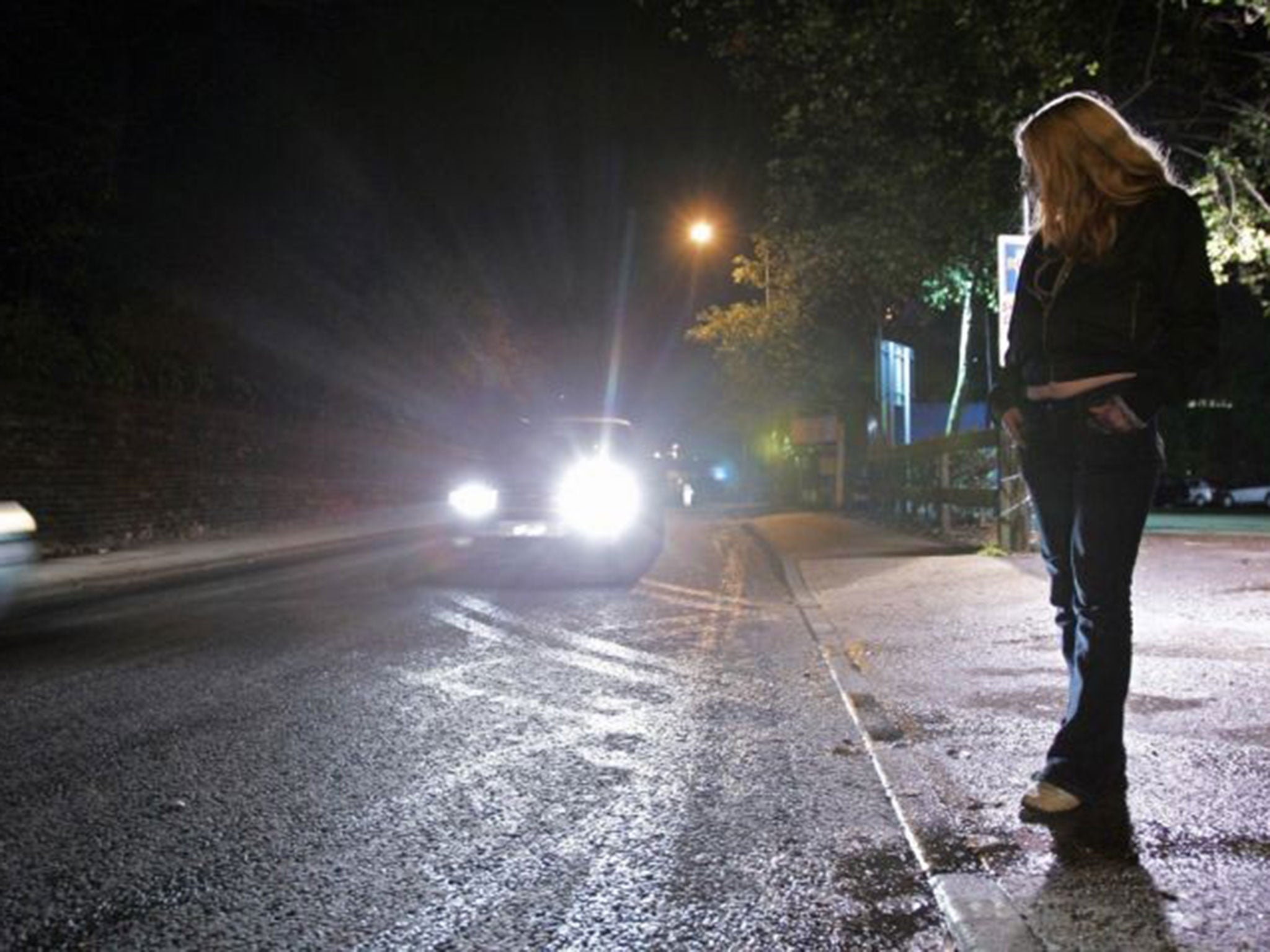Criminalising buying sex will harm vulnerable women, not help them
Diana Johnson’s bill aims to reduce demand for sex work by making its purchase illegal. Instead, the law could put women in danger and drive them into poverty


Last Wednesday, Dame Diana Johnson, Labour MP for Kingston Upon Hull North, tabled a motion in the House of Commons to criminalise the purchase of sex. The legislation, which passed its first reading, also seeks to criminalise online sites which sex workers use to advertise their work. While Johnson’s motives are steeped in a desire to protect women from violence and exploitation, her proposal, if accepted, is likely to harm the women she means to safeguard.
Criminalising the purchase of sex, often referred to as the “Nordic model”, has been introduced in Sweden, Norway, Canada, France, Ireland and Iceland. Its aim is to reduce the demand for sex by dissuading men (the primary buyers) illegally purchasing it – less demand, less sex work, less violence against women, less sex trafficking. Advocates of the Nordic model recognise all sex work as violence against women and want to see it eradicated.
The problem with the Nordic model is its idealistic viewpoint that sex work will become non-existent if illegal. While many countries that have adopted the Nordic model have reported a reduction in numbers of people accessing the sex industry, there have also been reports of loss of income, riskier sex with riskier clients, less condom use, more violent sex that has even led to deaths, less confidence to report violence to police, and lone working situations which provide no safety net.
When sex workers are not allowed to unionise, are afraid of the police, are increasingly stigmatised by society, and unable to work together, they are more at risk of harm from buyers. It is for these reasons that Amnesty International, Human Rights Watch, the World Health Organisation, UNaids, and multiple human rights advocates are pushing for full decriminalisation of sex work (Decrim). They have conducted research across the globe and have arrived at the conclusion that decriminalising sex work maximises the legal, justice, and health protection for sex workers.
Additionally, it must be noted that women, of which account for 88 per cent of sex workers in the UK, are nearly always working in the sex trade due to a connection with poverty. Recently, it was estimated that 2 million families, including a million children, will be driven into poverty in the wake of Covid-19. 86 per cent of austerity cuts have targeted women. Child poverty has increased by up to 55 per cent in some areas. Universal credit has decimated families, especially single mothers. Some women are desperate to stay afloat, and sex work is giving them a lifeline to stay above water. To take their livelihood away from them puts women and their families in danger of food poverty, homelessness, and destitution.
In an ideal world, women wouldn’t need to do sex work to stay out of poverty, but we aren’t living in an ideal world. Johnson proposed with her motion that women would be given support services and provision to leave the sex trade if buying sex was criminalised. But this promise to provide for women hasn’t been fulfilled in the current system. Appeals for emergency payments, sick pay, and healthcare have been ignored. Reports documenting the links between universal credit and “survival sex” haven’t elicited action. The poverty of women has been met with apathy and would likely not change if sex work were criminalised. This would leave a sex worker without money and without any legal means to act in such a way to get it. This type of desperation could drive her to look for illegal sex work, at the hands of traffickers who would exploit her, without any consideration for her safety.
One of Johnson’s valid concerns was that traffickers are exploiting the current UK system, which allows payment for sex, albeit with multiple stipulations and exceptions – such as soliciting in a public place, kerb crawling, owning or managing a brothel, pimping and pandering. However, evidence suggests criminalisation of sex work does not reduce trafficking. A better solution would be if the UK seriously addressed poverty among women – a vulnerability which the traffickers play on. By tackling that problem, there is a chance we may see less sex trafficking.
For women that are in exploitative, trafficked conditions, it is unlikely they will disclose any information if they fear further poverty, deportation, or arrest. However, if they are working in groups (which isn’t legal under the Nordic model or in our current model), their exploitation is likely to be recognised by other workers who, along with other support from charities and the police, could assist them to get out of their trafficked situation.
One sex worker told the English Collective of Prostitutes, in reference to the motion: “I wish that people who know zero of our industry would stop making damaging decisions. I am wholeheartedly against the criminalisation of our customers, not only are they decent people who don’t deserve to be criminalised, but they will be terrified to visit any premises where women work together in the interests of our safety. We will be forced back onto the backstreet alleys and made as vulnerable overnight as women were in Victorian days.
“We won’t be able to feed our kids, we will lose our places of safety, our incomes and any peace of mind. At best we will be forced into poverty then debt then maybe living on the streets.”
Dame Sarah Johnson most likely has a feminist, protective motive for suggesting the Nordic model in the UK. But if her motion gets pushed through, she will be doing more harm than good to sex workers. Advocates for full decriminalisation will be tirelessly working leading up the second reading of the bill on 29 January, hoping to convince MPs that criminalising buying sex isn’t the answer to helping women in the sex trade – poverty alleviation is.
Join our commenting forum
Join thought-provoking conversations, follow other Independent readers and see their replies
Comments

Bookmark popover
Removed from bookmarks